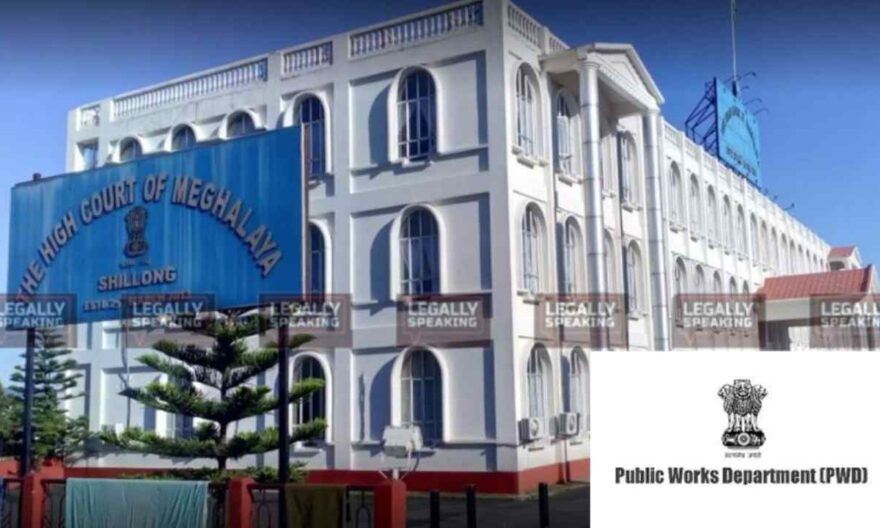
The Meghalaya High Court has recently expressed concern over the increasing trend among public sector undertakings (PSUs) and government litigants to inundate courts with excessive documentation, aiming to hinder a thorough examination and prompt adjournments.
A bench of Chief Justice Sanjib Banerjee and Justice W Diengdoh made this remark while imposing a penalty of ₹10 lakh on the Public Works Department (National Highway) for subjecting a contractor to needless litigation.
“It has become fashionable, particularly for public sector undertakings and government litigants, to throw sheafs of paper at the court and believe that such voluminous tomes would dissuade judges from looking deep into the matter and be frightened enough to grant an adjournment and delay the inevitable,” the order reads.
The Bench criticized the habit of unworthy litigants exploiting court delays and emphasized the need to impose costs for such tactics.
This observation came during the hearing of a challenge by the Public Works Department (PWD) against an order of the Commercial Court in Shillong. The case revolved around an arbitral award issued in July 2021.
The dispute arose from a contract for the two-laning of a highway, with the PWD engaging the contractor as per the terms of the agreement. The contract stipulated that disputes were to be referred to a Dispute Review Expert Board (DREB), and its decisions would be final and binding unless challenged within 28 days.
In 2017, the DREB determined that the contractor was entitled to over ₹117 crore due to delayed payments and unpaid bills.
Another decision was rendered by the DREB a year later regarding remaining disputes related to contract delays and disruptions. The PWD did not comply with or contest the 2017 decision, and when the contractor initiated arbitration on June 11, 2018, the PWD claimed it would appeal against the DREB’s order, disregarding the contractual provision requiring arbitration within a specific timeframe. Subsequently, an arbitral tribunal was constituted, and during the initial proceedings, the PWD did not raise any objections to the inclusion of the DREB’s decisions in the arbitration. However, months later, the PWD filed an application asserting that the claims based on the DREB’s decisions were not arbitrable under Section 16 of the Arbitration Act. Considering the PWD’s lack of dispute regarding the DREB’s decisions, the arbitral tribunal concluded that the PWD could no longer challenge the total amount awarded to the contractor. Dissatisfied, the PWD approached the High Court.
The Court strongly criticized the PWD’s appeal as a futile and irresponsible exercise. It questioned why the PWD failed to raise concerns about duplication of interest in the previous DREB decisions, asserting that the arbitral tribunal correctly interpreted the PWD’s silence and lack of response as acquiescence.
Criticising the conduct of the appellant, the bench stated,
“Indeed, an issue has been sought to be raised quite seriously that the Union Ministry of Road Transport and Highways was a necessary and a proper party to the present proceedings. Surprises never cease. Such ludicrous assertion may probably be because the officials who are behind the appellant; who do not need to pay from their own pockets for their recalcitrance and it is the tax-payers’ money that being squandered.”
Additionally, the division bench noted that the lower court was entirely justified in refraining from interfering with the award since it was beyond reproach. The High Court reached this conclusion based on the admission of the PWD that it was obligated to pay the specified amount, but not as a result of the arbitral tribunal’s directive.




